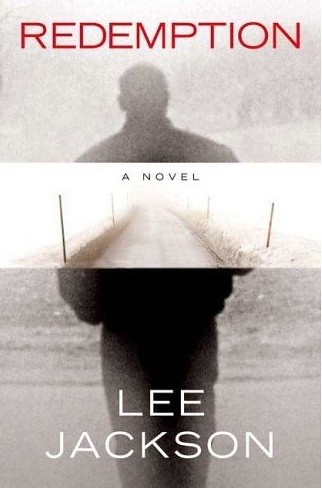Redemption is a near-future thriller, with its portrayal of a U.S. frightened enough by terrorism to cut back nearly all civil liberties, proves a fair debut for Lee Jackson. The story opens with Ben Trinity, a former college professor arrested for funding a terrorist group, hitchhiking to the west coast. Heading out to start a new job as part of his parole, a snowstorm forces him to stay the night in Redemption, Montana and miss his appointment. After getting permission from his parole officer Trinity takes a job as a handy man at a local diner. His first few days are easy; Trinity works hard and endears himself to the locals. But word leaks out about his past and what began as a simple character piece moves quickly into a political thriller. The locals fear Trinity, speak out vocally against his living there and even threatening his life. As his situation turns from bad to worse it becomes clear that Trinity is being set up to take a fall and, perhaps, even be killed by a faction within the government. The only way for him to survive is to make the truth about his past fully public and let the court of public opinion decide for itself.
As a central character Trinity moves from mysterious to likable as his innocence becomes apparent. Unfortunately, the secondary characters don’t quite have the same feel, reading more like stock character types like the closed-minded sheriff and the sweet-but-cautious love interest. There’s also odd inclusion of two short passages written in the point of view of a teen-age girl with a crush on Trinity. Kids are hard to write well, and Jackson seems to have forgotten most of what’s it like to be a teen. It’s all slang, and while teens certainly use slang they don’t sound like a walking text message. At least not yet.
SF readers will be let down a bit that the futuristic elements are confined to laws and technologies that limit the freedom of citizens in the name of government protection. While these aspects are well done, it would have been nice to see some other pieces of the future beyond what worked within his political theme. On the plus side, though, it makes this world feel very close to our own. In fact, the most haunting aspect of the novel is how close to current reality Trinity’s situation is; it’s not hard to imagine the circumstances of an innocent man’s life torn apart in the name of protecting the public.
Set in a thriller-style plot, Jackson’s fast-paced writing works in large part to get across his own political ideas. Even though I agree with his perspective on civil rights, there were many points in the story that I wanted something else to grab on to. Overall, I found this a fun read and, in some small ways, even provocative. Although it’s not likely I’ll read this one again I’ll definitely keep an eye out for his next book.
Excelsior

1 comment:
Thanks, good review for the most part. And just by the by, Lee, which is me, is a she, not a he. Isn't it fun, though, that four years later, the protests at the end of my novel echo the current Occupy protests? Sometimes reading the handwriting on the wall is far too easy...
Lee Jackson
Post a Comment